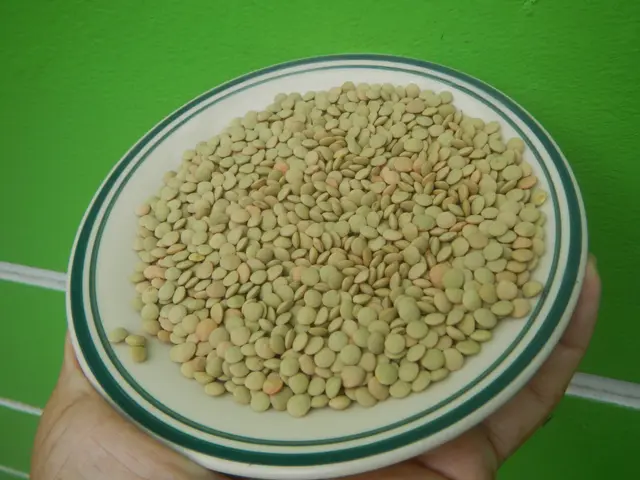Expert Guidance: 25 Strategies for Extending Life Span and Enhancing Happiness Through Nutrition
Living Longer Through Balanced Diet and Lifestyle
Eating habits play a significant role in promoting longevity, and it's not just about consuming trendy superfoods. A balanced diet, combined with healthy lifestyle choices, can help slow down disease progression and enhance quality of life.
Research on centenarians from the "Blue Zones" reveals that many of the world's longest-living people enjoy moderate amounts of wine, cheese, bread, and even sweets. However, the key to a longevity-promoting diet lies in diversity, nutrient density, and minimally processed foods.
Prioritizing nutrient-rich whole foods across diverse categories such as fruits, vegetables, whole grains, lean proteins, and healthy fats is crucial. Emphasizing variety by including foods like mushrooms, millet, arugula, chickpeas, and mangoes can provide antioxidants, fiber, vitamins, minerals, and compounds that support immune health, reduce inflammation, regulate blood sugar, and maintain cardiovascular health.
Including lean proteins like pasture-raised eggs and plant-based proteins (e.g., pea or hemp protein) for muscle maintenance and metabolic health is also essential. Healthy fats like monounsaturated fats from avocado support heart health and help control inflammation. Focusing on fiber and antioxidants from berries, leafy greens, and other vegetables can reduce the risk of chronic diseases and support gut microbiome health.
Balancing diet with lifestyle factors, including adequate exercise and quality sleep, is also important. These interact synergistically with diet to promote longevity and better physical and mental health. Paying attention to limiting caffeine near bedtime and consuming sufficient micronutrients such as calcium, magnesium, and vitamins A, C, D, and E for improved sleep is crucial for long-term health.
However, it's not just about what you eat but also the source, quality, and preparation of food. Ultra-processed meats like hot dogs, sausages, bacon, and deli slices increase the risk of heart disease and certain cancers. Deep-fried foods cooked in oils rich in trans fats or repeatedly reused oils increase exposure to harmful compounds like acrylamide.
Cultures with the longest lifespans tend to have high plant-to-animal food ratios. White bread and refined grains, stripped of fiber and nutrients, spike blood sugar levels and increase the risk for type 2 diabetes and heart disease. On the other hand, whole grains help regulate cholesterol, maintain a healthy weight, and support gut health.
Fermented dairy products like yogurt and kefir are associated with better gut microbiome diversity, improved immune function, and lower mortality risk. However, excessive dairy, specifically whole milk and cream, may increase the risk of chronic diseases and reduce lifespan.
It's also important to note that not all plant-based diets are created equal. A vegan diet that relies heavily on processed meat substitutes, sugary cereals, and white bread can lead to vitamin deficiencies, imbalanced blood sugar, and a higher risk of inflammation.
Indulging in foods like cheeseburgers and chocolate cake can still be a part of a longer life, but it's important to be mindful of frequency and pairing choices. For example, opting for whole grain buns and fresh fruits for dessert can help balance the meal.
In sum, living longer isn't about purity; it's about pattern. Consistency trumps perfection. Balance beats restriction. Variety is king. Even adopting these improvements later in life can slow disease progression and enhance quality of life.
- Science shows that a balanced diet, combined with adequate exercise, quality sleep, and a focus on nutrient-rich whole foods can slow down disease progression and support health-and-wellness in aging.
- The key to a longevity-promoting diet lies in diversity, nutrient density, and minimally processed foods, such as fruits, vegetables, whole grains, lean proteins, healthy fats, and mushrooms, millet, arugula, chickpeas, and mangoes.
- Aging individuals who follow a healthy-diet, rich in fiber, antioxidants, and high in plant-based foods, can lower the risk of chronic diseases and maintain cardiovascular health, while minimizing the intake of ultra-processed meats and refined grains.







